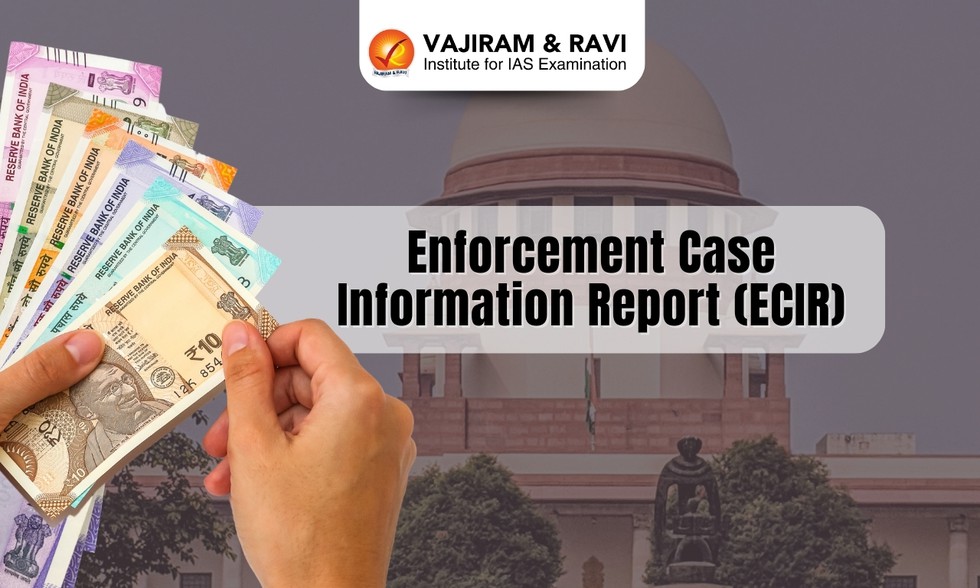About Enforcement Case Information Report (ECIR):
- The ECIR is a formal entry of the complaint lodged by the Enforcement Directorate (ED).
- Whenever the ED receives information about the commission of an offence of money laundering, it is converted into a formal report known as the ECIR.
- It serves as a starting point for ED’s proceedings, including the attachment of assets and arrests.
- There is no mention of the ECIR in the Prevention of Money Laundering Act, 2002 (PMLA Act), or Rules.
- Since the PMLA does not necessitate the registration of ECIR, it is considered a non-statutory document.
- However, as per the practice of ED, the ECIR is lodged before taking any action under the PMLA Act.
- The ECIR under the PMLA Act is similar to the First Information Report (FIR) lodged by the Police for cognizable offences.
- However, the Supreme Court held that an ECIR cannot be equated with an FIR, which is mandatorily required to be recorded and supplied to the accused.
- As per the ED, ECIR is a document meant for identification of a particular case and for departmental convenience and is purely an internal document.
- ED is not legally bound to provide a copy of the ECIR to the accused.
- Since ECIR lacks statutory status, there is no requirement to quash them.
Key Facts about Enforcement Directorate (ED):
- The Directorate of Enforcement or Enforcement Directorate (ED) is a domestic law enforcement agency and economic intelligence agency.
- It was established in the year 1956 with its Headquarters at New Delhi.
- It is responsible for enforcing economic laws and fighting economic crimes in India.
- It is responsible for inspecting and taking legal action involving economic crimes, money laundering, corruption, and breaches of foreign exchange laws.
- Nodal Ministry: Department of Revenue, Ministry of Finance
- Objectives of the ED: The prime objective of the Enforcement Directorate is the enforcement of three key Acts of the Government of India, namely:
- Foreign Exchange Management Act, 1999 (FEMA),
- Prevention of Money Laundering Act, 2002 (PMLA), and
- Fugitive Economic Offenders Act, 2018 (FEOA).
